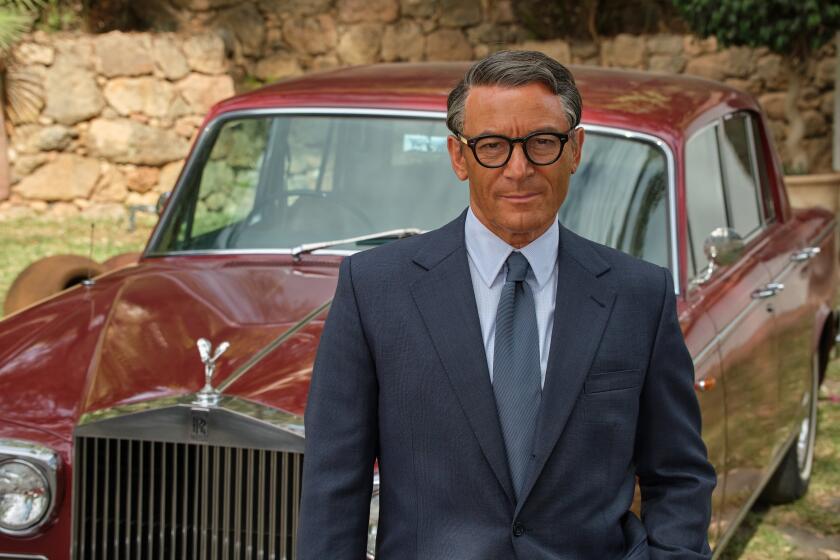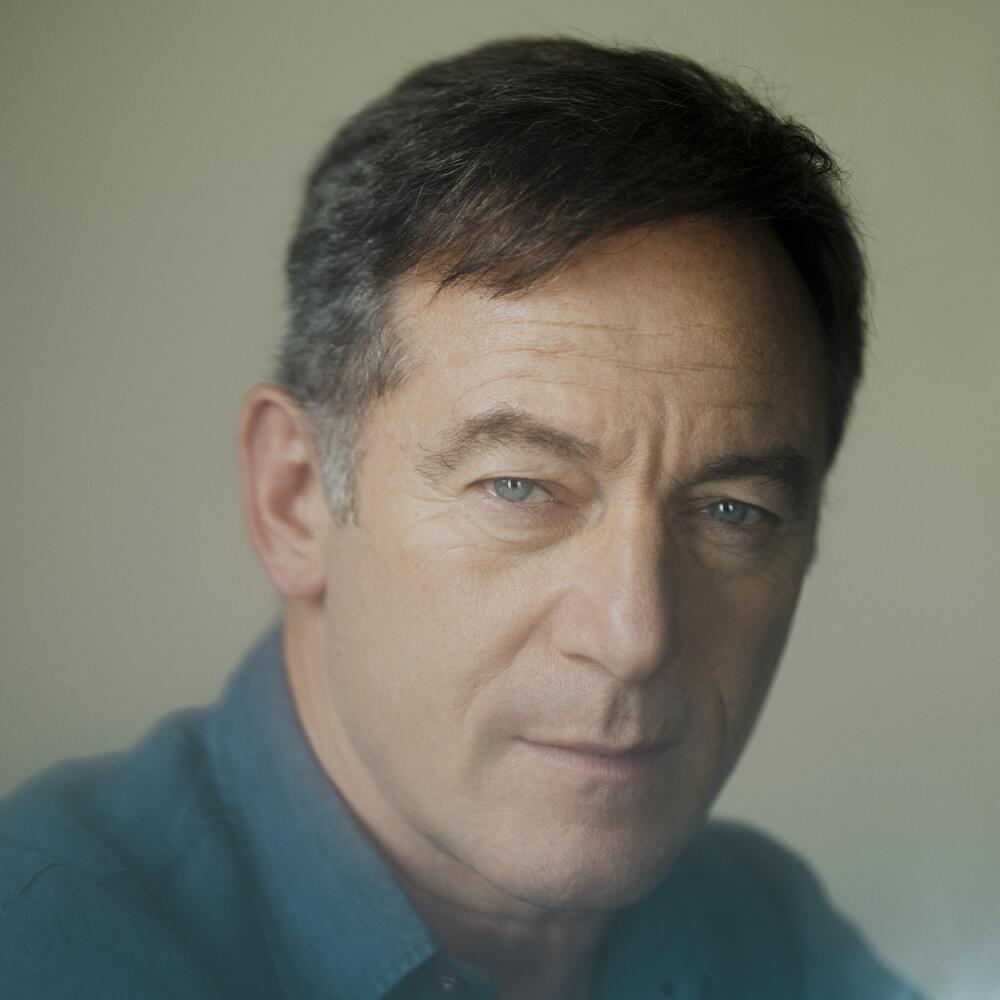
- Share via
Jason Isaacs had an instinctive reaction when he was first approached to play Cary Grant in the ITV and BritBox limited series “Archie.”
“I thought, ‘F— no, absolutely not,’” the British actor says, speaking in London in November. “Over my own dead body would I do this. Because who would want to play Cary Grant? It was a poison chalice up to the rim.”
But Isaacs, known for taking on complicated characters who exist in moral gray areas, eventually came around to the idea. He met with writer Jeff Pope and quickly understood the four-episode series wasn’t a biopic. It wasn’t even really about Grant or his career. It was about Archibald “Archie” Leach, the man behind the famous name, and his relationships off-camera.
“Many times I sprint off in the opposite direction because things look like they’re impossible to do,” Isaacs says. “[But] I recognized the instinct to reinvent yourself. And I really recognized, in a very personal way, that thing of thinking your life really begins when you have a child. So whatever the critical response to it was, that was something that made sense to me, and I jumped in.”
Pope began writing the series almost a decade ago when he connected with Grant’s ex-wife Dyan Cannon. She had written a memoir about their marriage, 2011’s “Dear Cary: My Life With Cary Grant,” which became the basis for the episodes (the first two episodes are now streaming; the final two arrive Dec. 14). The couple’s daughter, Jennifer Grant, came on board as an executive producer. Isaacs is one of several actors who plays Grant over his lifetime, but he had to embody him from his late 30s through 82, when Grant died, because of the story’s scope. (Dainton Anderson plays Grant as a child, with Oaklee Pendergast as teenage Grant and Calam Lynch as Grant in his 20s.)
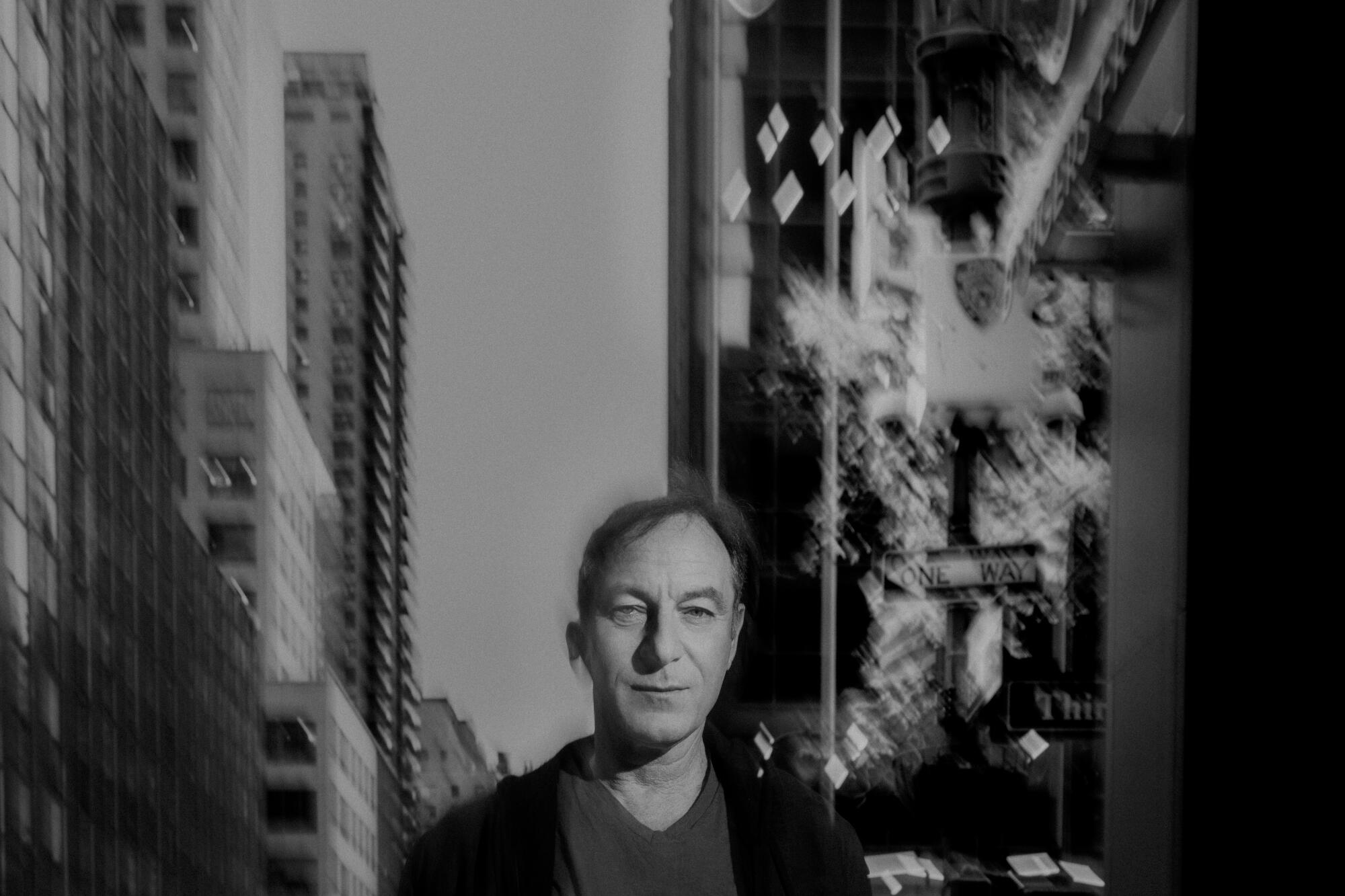
“It took a long time to find the right guy to play him,” says Pope, who thought of Isaacs after seeing him in “Mass.” “What I thought he did brilliantly was we see him, we connect and we hear him. We feel that he’s Cary Grant. But then he plays the story. He doesn’t play the caricature.”
Cannon, who is also an executive producer, says Isaacs was the “only one” she wanted. For her, it wasn’t about replicating Grant’s iconic image. As an actor herself, she was looking for someone who understood Grant’s many nuances.
‘Archie,’ a four-part biographical series on Britbox about the man known as Cary Grant, and Netflix’s ‘The Archies,’ based on the beloved comic book, share commonality beyond the titles — namely that they’re worth watching.
“Jason wanted to know a lot about what wasn’t in my book and about what wasn’t in the script, and I did share some things,” Cannon says. “What I love about Jason’s performance is his choices were so brilliant. He didn’t have a false moment for me. Was it Cary? No. But it was his understanding of what Cary was and that was right on the nose.”
Isaacs, who was cast six months ahead of shooting, decided to accept the challenge. He and Pope traded ideas about the scripts. He spent time speaking with Cannon and Jennifer Grant, who gave him audiocassettes and videos from her childhood. He read “all the biographies” and watched “all the movies.” But it wasn’t until Isaacs came across a recording of Grant giving an interview, which no one knew existed, that he locked onto Archie Leach.
Dyan Cannon writes about Cary Grant
“There are no recordings of him giving interviews,” Isaacs says. “He very reluctantly would appear in public and do speeches — he turned down a million awards. It was all a character. I needed to find a recording of him to hear his real voice. I found a transcript [of one] and tracked down the person who had done it. I begged and proved I could be trustworthy. He played it to me and it was a revelation. You could just hear a million colors that you don’t hear when he’s onscreen.”
Physically, Isaacs wanted to evoke the actor’s look and his broad trans-Atlantic accent without resorting to mimicry. Like Grant, he walked bowlegged and the hair and makeup team augmented Isaacs’ hair, chin and eyes, with particular consideration for how he would age over the story. He wore bespoke suits created by tailors on Savile Row. But Isaacs says it would be “ludicrous” to actually try to be Grant onscreen.
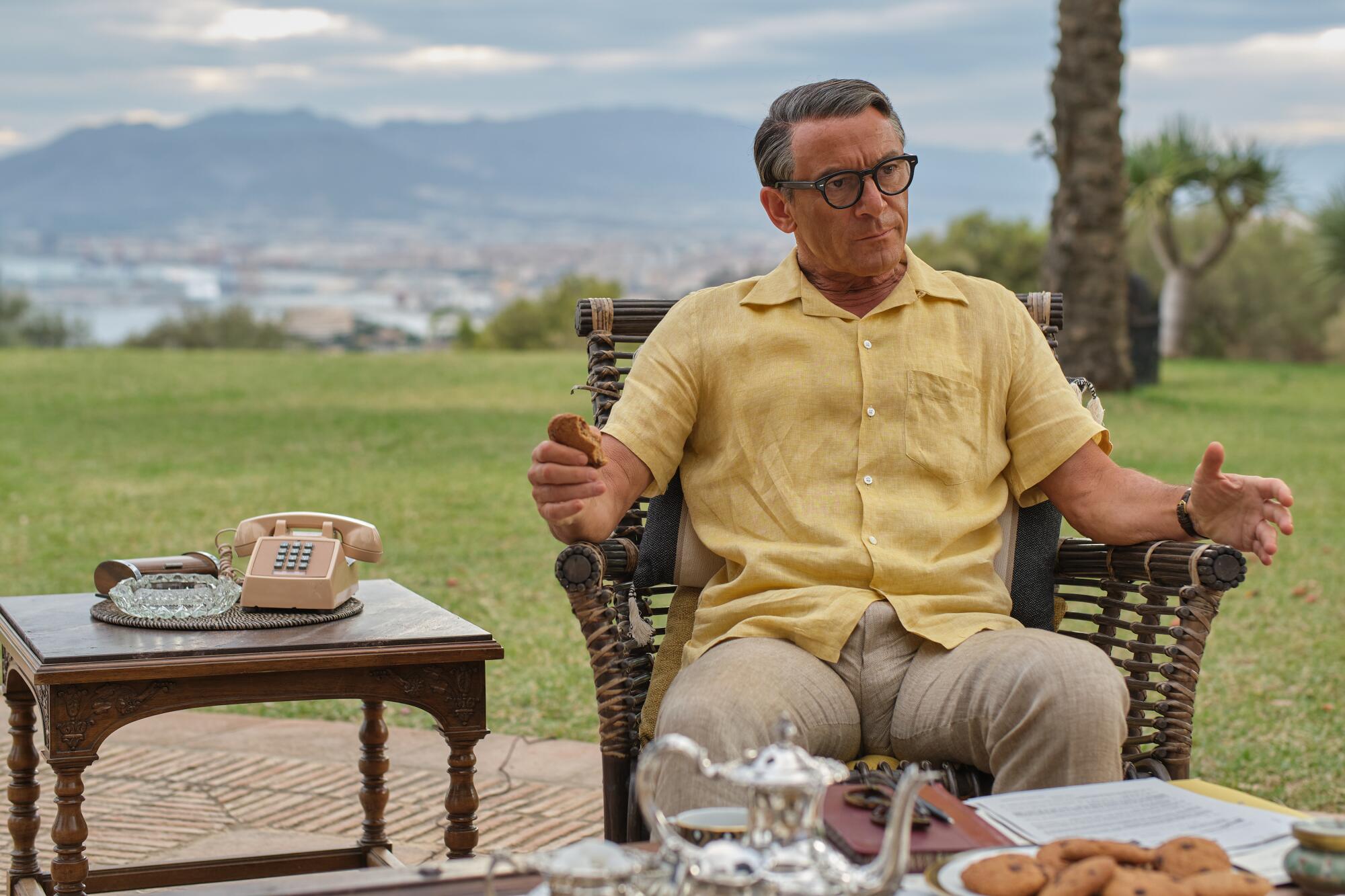
“There’s enough of an indication so you don’t go, ‘Well that’s insane,’” Isaacs says. “But it’s mostly [about] the inner landscape. People will have to go along with me and go, ‘OK, I’m going to imagine Cary Grant up there.’ And then I can show them Archie Leach.”
The series, which also stars Laura Aikman as Cannon and Harriet Walter as Grant’s mother, Elsie Leach, is nonlinear and shifts between timelines. It focuses on Grant’s marriage to Cannon and the birth of their daughter but also reveals the truth-is-stranger-than-fiction tale of Grant reconnecting with his mother late in life. It portrays Grant as an imperfect, complicated man grappling with real demons, including a troubled childhood and an obsession with LSD.
Cary Grant! Who was ever like him?
“The only point in telling a story about someone whose life seems so perfect and shiny from the outside is to remind us all that nothing is ever what it seems,” Isaacs says. “And that the wounds of childhood will stay open unless you make an effort to heal them. He wanted to make himself beloved. Not only did it not fix the hole inside him, it made it much bigger.”
Cannon adds, “He had to create Cary Grant in order to just let go of all that fog of misery and abandonment and aloneness and feeling unloved. That’s why he couldn’t take on the responsibility of a family.”
Cannon’s often-negative memories of Grant stand in contrast to the public understanding of the actor. In one scene, which is true to life, Grant gives away her dog right after Cannon gives birth.
“It was a monstrous thing,” Isaacs says. “It’s a four-hour show and he had an 82-year life, so we can’t put everything in. That was an awful thing, but it’s only one of them — trust me.”
1
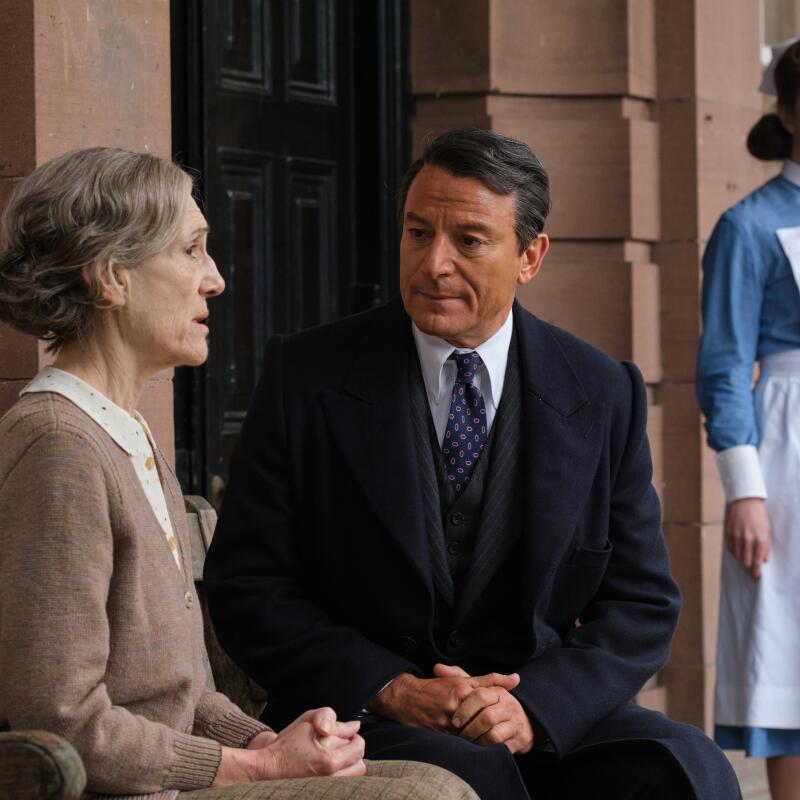
2
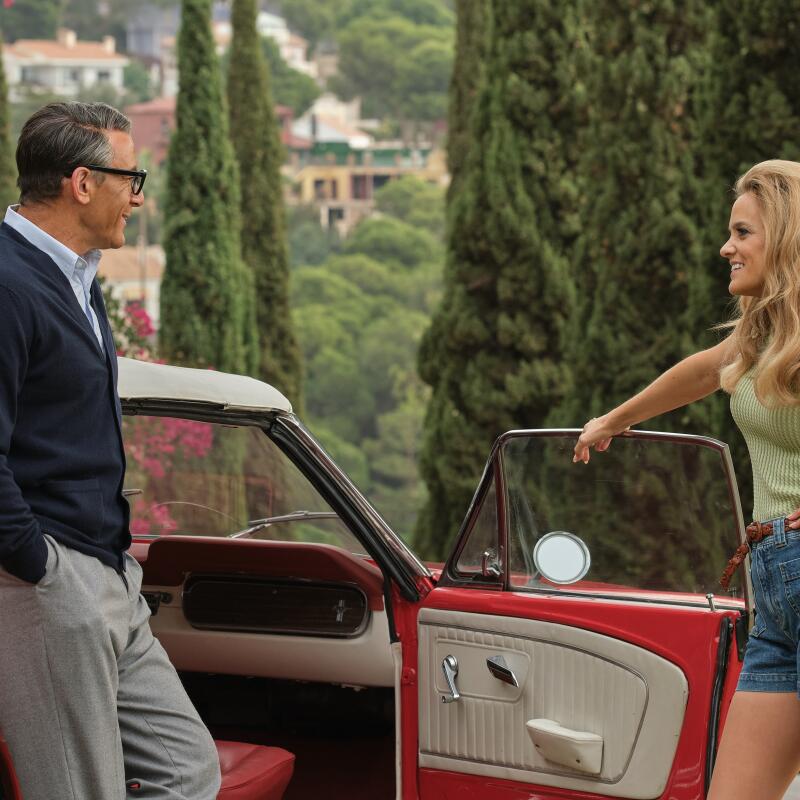
1. Harriet Walter, left, plays Cary Grant’s mother, Elsie Leach, in “Archie.” (Matt Squire) 2. Laura Aikman, right, plays Cary Grant’s fourth wife, Dyan Cannon, in the series. (Matt Squire)
Isaacs pauses and adds, “I’m describing him like I judge him harshly. I don’t. He suffered more than anybody else from his own worst instincts. He really was fragile.”
Although it was intense, Isaacs says he looks for work where he can become fully immersed. He has a fear of being an actor who is “this indulgent kind of show pony.” He doesn’t want to simply turn up and say the lines and leave. He likes stories and characters that require something from him, which is evident when you look at the vast array of roles he’s done, both onscreen and on the stage.
Isaacs has often played villains, like Lucius Malfoy in the “Harry Potter” film franchise and Dr. Hunter Aloysius “Hap” Percy on Netflix’s “The OA,” but mostly he just wants to be known as the guy who carries equipment, gets to know the crew and brings some enthusiasm every day.
“One of the reasons I was attracted to acting was the instant community doing plays and arts festivals,” he says. “You lose that a bit when you’re an actor. And if you’re higher up on the call sheet and you have a trailer and get called to the set late, you lose that sense of ‘We’re all in this together.’ I love low-budget things. I love things that [have] skeleton crews and when you’re on set all day.”
While Isaacs has always commanded attention as a performer, he found himself in the zeitgeist when “The OA,” created by Brit Marling and Zal Batmanglij, debuted its first season in 2016. Although the Netflix series was canceled after its second season, Isaacs is hopeful it could eventually be revived.

“I’ll start crying,” he says when asked about “The OA.” “There are some things that have ended and where I died and I know I won’t be coming back. And there are some things that are open-ended, so never say never. But with Brit and Zal — anything they wanted to do, I’d do it. In fact, we did go away a year ago with a camera for the weekend and make something for ourselves. I don’t know if anyone will ever see it. We just like spending time together and telling stories.”
Batmanglij and Marling say that project does, in fact, exist on a hard drive. But Batmanglij isn’t sure it will ever be released. It was something the trio did because they like to collaborate.
“The whole cast of ‘The OA’ was very special and I learned so much from Jason,” Batmanglij says. “You have to have people who are doing it not for a paycheck but because they just want to do a good job.”
Marling, who describes Isaacs as “actual heaven,” says she likes working with him because of his commitment to the story he’s telling.
“We would sometimes be in the edit and be like, ‘Something’s not quite working,’” Marling says. “And we’d be like, ‘You know, just cut to Jason.’ Because in the moment he’s always telling the truth on his face. He’s incapable of lying as an actor.”
Isaacs himself is honest that there are acting jobs he does accept to make a living. But if acting wasn’t his job, he says, it’s what he would do as a hobby. It’s deeply satisfying to him to be part of “the storytelling club of minstrels.” He can transform himself into someone else, which gives him relief from the difficulties of the world — and it can give viewers relief too. He wants to tell compelling stories, whether it’s a complicated look at someone like Grant in “Archie” or an intimate relationship drama like his upcoming film “The Salt Path.”
“I just find people who I think have a great idea or a great story and I follow them,” Isaacs says. “If it’s a play done in a tent in a field or if it’s a giant movie, it doesn’t really matter to me. And I hope that will never matter to me.”
More to Read
The complete guide to home viewing
Get Screen Gab for everything about the TV shows and streaming movies everyone’s talking about.
You may occasionally receive promotional content from the Los Angeles Times.
